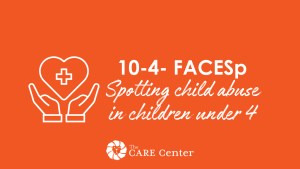The fact is, every responsible parent is concerned about their children’s safety. At the same time, it is important for kids to socialize at a young age and be able to have a certain level of freedom to grow and develop independence. It’s all about finding a healthy balance, which can be tough. While ideal, constantly keeping your eyes peeled on your kids may not always be plausible. The good news is, you can implement some basic safety rules for your children to abide by. This will help them become more aware of how they can protect themselves when you are not around.
Safety at home
Constantly watching over your children’s every move may not be possible, even at home. With that said, here are some useful rules worth laying down to make sure that they stay out of harm’s way even when you are not immediately present.
1. Do not open the door for strangers
Instruct your kids to keep the doors locked and secure at all times, and only open the door for familiar faces. Let them know that if any stranger rings the doorbell, they should stay quiet and not open the door. This is especially important if your kids are old enough to be home alone. If you haven’t already, consider installing some security cameras so that your family members can safely and easily see who’s at the door.
2. Be familiar with the family emergency contacy list
Every household should have an emergency contact list, neatly written out or printed and stowed away somewhere central. This way, if a disaster strikes, family members can easily refer to it and contact others if needed. Let your children know where they can find this list and how to use it in the event that they need to.
Main contact information should ideally be memorized (such as parents’ phone numbers) but other family members’ contacts like grandparents, aunts, and uncles in the immediate area can be noted on this emergency contact list. In addition to family contacts, also include the phone numbers of local paramedics, fire departments, police stations, family doctors, and close friends to be extra prepared. It is recommended to have emergency numbers easily accessible in various places throughout your home.
3. Know the family escape plan
Time is of the essence during an emergency, so it’s essential to have a solid family escape plan in place. Spend a family night discussing home safety and the potential escape routes should a disaster take place. It’s imperative that your children know what measures to take if they are faced with a fire, burglary, or any other disaster. When creating an escape plan, the key is to devise the quickest way to get out of the house, and make sure that everyone in the family is on the same page and understands their role in ensuring everyone’s safety.
In addition to putting together the escape plan, you’ll also want to set in stone where family members should gather and meet outside to account for everyone’s safety. If you are familiar with CPR, it would be a good idea to teach your children about it. First-aid is also another safety fundamental that kids would benefit from being familiar with early on. Show them the different elements they can find in a first-aid kit and how they are used.
4. Stay away from the medicine cabinet
Kids should not have access to any medications when they aren’t under a guardian’s watch, as they could easily overdose or unintentionally take the wrong medicines. This could lead to serious health problems. Protect your children by teaching them that any type of drug can be dangerous if taken in large quantities. Also, inform them that they should not take any type of drug unless given to them by a parent or a trusted guardian. Read more about medication safety from SingleCare’s Home Medication Safety Guide.
5. Practice water safety
Children under six years of age should always be monitored by a guardian when in a pool or bathtub, because they can drown in just a few inches of water. Teach your children to “test the waters” to make sure that it isn’t too hot before they submerge their bodies into it and potentially burn themselves. Remind them that they should never mix electricity with water to avoid electrocution.
Kids who do not know how to swim yet should use floaties in larger bodies of water. Help your children become familiar with floating techniques and basic swimming so that they can be calm in water. Last but not least, encourage them to wear safety gear such as goggles, arm bands, and vests to stay afloat.
6. Pay attention to allergies
Some kids may be allergic to a variety of things from certain pets, foods, and plants, to name a few. If you know your child has any allergy, be sure to educate them so that they know what to look out for and stay away from.
Kids who are allergic to cats for example, should ideally stay away from them or take allergy medications as needed if they are going to go over to a friend’s house with a cat. Teach young ones about food allergies; what it means to have one and how to stay safe from it. With time and hopefully not too much experimentation, your children will eventually become familiar with what is and isn’t good for their well-being.
7. Be able to use the home security system
Is your home equipped with a security system? If so, your children will benefit greatly from knowing how to use it. First and foremost, explain to them the importance of keeping security system information confidential. For example, if a key code of some sort is used to either activate or deactivate an alarm, then that code should not be shared with anyone else outside of family. Show your kids how to arm and disarm the alarm system, and locate and activate any panic buttons.
8. Furniture: A No-Go Zone
When not securely placed, furniture can pose a serious hazard for children. This is especially the case if they are reckless and not prepared for the worst. For example, heavy furniture that isn’t mounted properly on the wall may fall and potentially cause injury to a child. To avoid such a catastrophe, kids should not be allowed to jump on beds or play near climb things like bookshelves.
safety at play
Playing outside is one of the most memorable times from childhood. Children growing up in rural communities can explore nearby streams and fields, while city kids have playgrounds and local stores. Playtime is pivotal for kids to learn, develop friendships, and expand their horizons. At the same time, it can be stressful for the child and parent alike. However, there is no need to get too anxious with the following guidelines kept in mind for rural and urban areas.
1. Know which plants and animals to be aware of
Rural
Kids playing out in nature should be taught to identify which local plants are dangerous, like how to identify poison ivy and poisonous berries. Neither is a pleasant experience, and can end up in emergency room visits. As for animals, if you live in an area that has snakes, then you’ll want to teach your kids to identify which ones are poisonous, where they tend to live, and what to do if bitten. The same goes for families that live in an area that may have bears, cougars, and other wild animals. A healthy respect for all wildlife will go a long way in preventing injuries or death.
Urban
The city life may not have so many encounters with plants that can cause harm, but poison ivy can propagate just about anywhere, especially in waterways like in Los Angeles. There are also many nocturnal animals that can be dangerous in the city, like raccoons who could be carrying rabies.
2. Scout out the areas where children may go
Rural
The terrain around rural areas can be great for playtime, but parents should make sure there aren’t rotted out trees with branches that could easily fall off and hit a child, or deep water areas in a nearby stream. Open fields can often have holes dug out by animals, that a running child could easily injure their ankle by tripping over. In some parts of the country, there are very unique terrain issues that parents should become aware of by contacting their local police department.
Urban
Communal parks, alleyways, and other areas that kids may pass through or go to play should be checked out for any harmful debris like scrap metal or unsafe structures.
3. Set boundaries and curfews
Rural
One of the joys of growing up in the country is playing outside in nature. Parents will want to set boundaries on how far out their children can safely go. It’s best to keep those boundaries within sight or at most within earshot of a loud bell that can be rung when it’s dinner time. Curfews should be set as well so if an older child who is allowed to explore a bit further isn’t back by a certain time, then parents know to go search for him or her.
Urban
It is often hard to see or hear very far in urban areas, so the boundaries may be much tighter. As with other situations, you’ll want to be very clear with your children in who they can trust and who they can’t, as well as setting a strict curfew once they’re older and possibly allowed to go further out with friends.
safety at school
When your children are old enough to go to school, it will not be practical for you to keep your eyes on them at all times — no matter how much you want to be right next to them. At one point in their lives, they have to venture out without you. They will meet new people and experience new things in settings without you, such as in school. Here are a few safety rules to have your young ones become familiar with before they go off to school.
1. Know full name, home phone number, and address
Basic contact details are the most important for your child to know and memorize. This way, they are able to share this information with police or any authorized official in case of an emergency. Take walks around your neighborhood and home with your child often so that they become familiar with nearby landmarks. If possible, also have your child memorize an emergency contact phone number. This could belong to a grandparent, aunt, or uncle, for example.
2. Don't ingest anything from a stranger
While we’re on the topic of strangers, it’s time to teach your children to politely refuse anything given by strangers. Kids may be tempted to take candy or a fruity-looking drink that may appear harmless, but could actually have something dangerous in them.
3. Stay away from fire
Curious children are often intrigued by fire; it’s not uncommon that they want to play with it. Teach them that it is not safe to do so, and let them know that experimenting with fire comes with dire, painful, and potentially deadly consequences.
4. Lost? Stay put
If your kids ever get lost somewhere, tell them to remain calm and stay where they are. Let them know that they can ask a woman with children nearby for help if they see them. Usually, kids get lost in supermarkets. If yours ever gets lost in one, tell them that they can go up to the checkout section of the store and seek help.
5. Fence climbing is not allowed
One day, your young and active child may be playing ball and suddenly find it bounce over to another space that’s fenced off. As tempting as it may be to climb the fence to retrieve the ball, it is not safe to do so. Teach your children that if this happens to them, they should either let go of the ball or ask a grown-up for assistance if one is around. No toy (or anything, really) is worth sacrificing safety!
6. Never wander off without an adult family member
Let your children know that if they need to go somewhere for something, they need to be accompanied by an adult family member — whether it be their own mom and dad, or grandparent, for example. For obvious safety reasons, kids should not leave the house or yard alone.
Additionally, they should not wander off anywhere with a stranger. Prepare your children for dangerous & high-pressure scenarios like someone saying “your mom told me to ask you to come with me” by instructing them to scream for help. In case of any emergency, make sure that at least one family member can supervise your children. Strangers should never be trusted with your kids.
7. Don't do anything that doesn't feel right
Growing up, children may feel pressured to do things that they don’t necessarily feel comfortable doing. Common examples include taking clothes off in front of others, diving in a pool, or eating/drinking something that may seem a little off.
Teach your kids that if their gut tells them no, they should listen to it. As long as they feel uncomfortable, they should never feel pressured to do something no matter how many other people are doing it. In the event that they do not feel like doing something, show them how they can politely decline in various scenarios.
Information from this article originated from Important Safety Rules to Teach Your Children
More from the CARE Center

See Us in the News
Check out a curated list of news interviews and media features where The CARE Center has made waves. From local spotlights to national platforms, here’s where we’ve been sharing our story.

Breaking the Silence: How Domestic Violence Affects Children
October is Domestic Violence Awareness Month. Learn how domestic violence affects children and what CAC’s are doing to help.

10-4-FACESp: A Tool to Spot Possible Child Abuse In Children 4 & Under
Learn how to spot child abuse in children under 4 and celebrate 10-4 day with Oklahoma medical providers!
